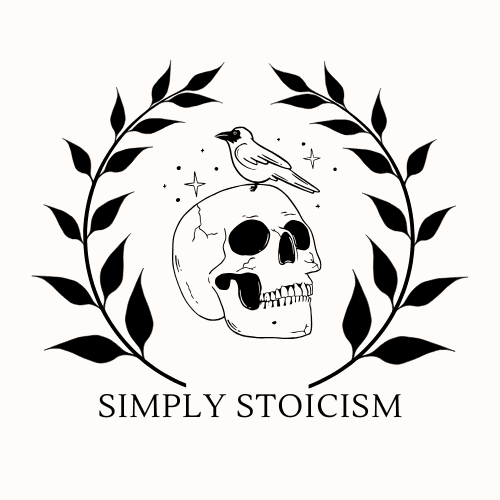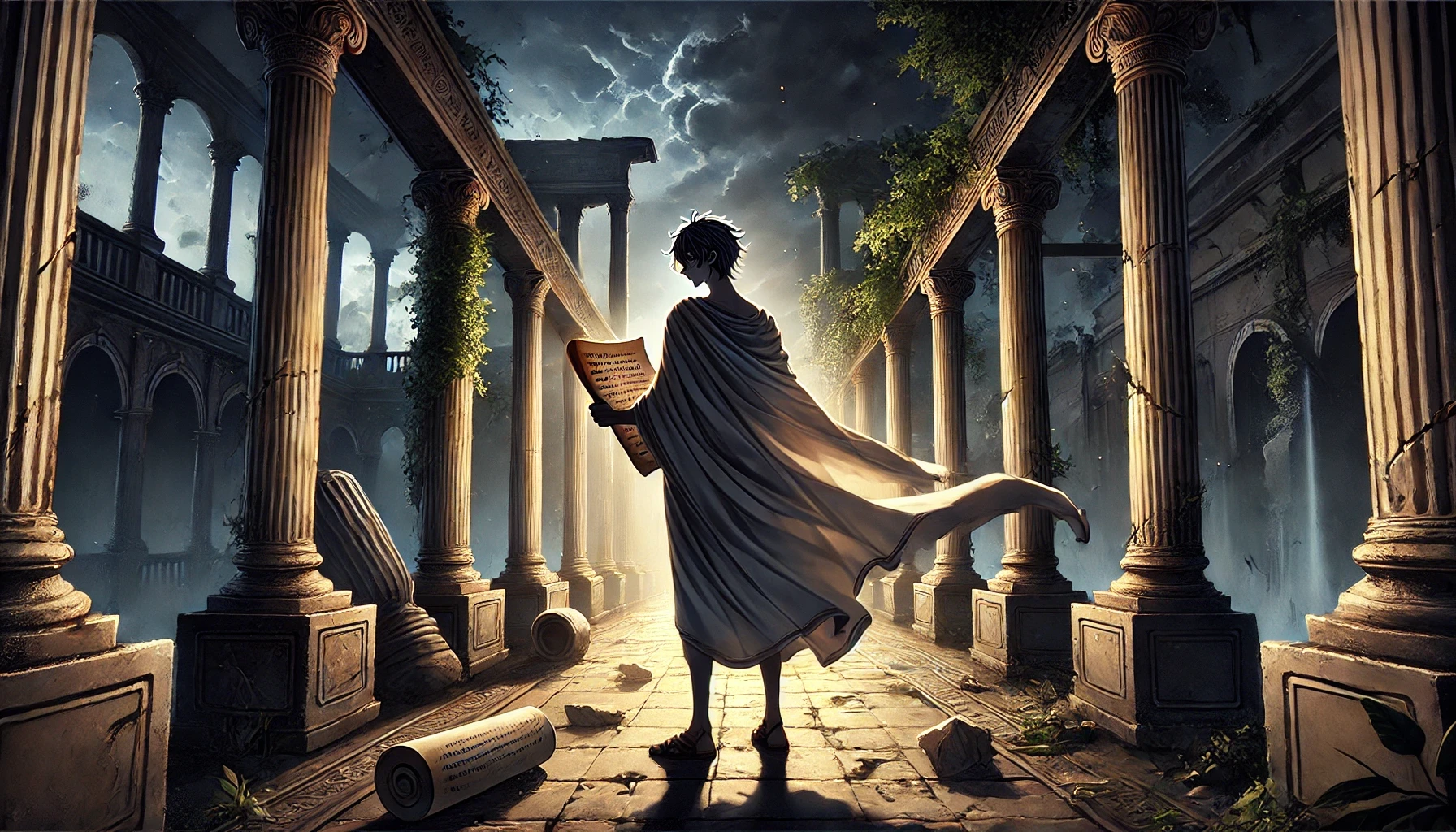The Story of Seneca: Why Embracing Death Helped Him Live with Less Stress
Discover how Seneca used the inevitability of death to beat anxiety and live better. Remembering you will die is liberating, not depressing.

Jon High
·
Dec 4, 2024
Picture this: You're one of the wealthiest men in Rome, advisor to the emperor, and living what most would consider a dream life. Then one day, a guard shows up at your door with a message: the emperor has ordered you to kill yourself.
What do you do?
If you're Seneca—one of ancient Rome's most famous Stoic philosopher—you shrug, invite some friends over for dinner, and calmly slit your wrists while discussing philosophy.
Weird flex, I know. But stick with me here.
Because while Seneca's death might seem metal as fuck, it's actually the least interesting thing about him. What's fascinating is how his approach to death transformed his entire life—and how it might transform yours too.
The Man Who Had Everything (And Still Couldn't Sleep)
Let's back up a bit. Before Seneca became a philosophical badass who could stare death in the face without flinching, he was just another stressed-out rich guy with insomnia.
Despite having more money than he knew what to do with, political power, and a cushy job as Nero's tutor (yes, that Nero—more on that clusterfuck later), Seneca was a mess. He suffered from chronic anxiety, couldn't sleep, and was constantly worried about losing everything he had.
Sound familiar?
Maybe you're not advising temperamental Roman emperors, but I bet you know what it's like to lay awake at night worrying about:
That presentation you have to give next week
Whether your job is secure
If you're saving enough for retirement
That weird pain in your shoulder that WebMD says is definitely cancer
We're all out here stressing about death in one way or another. We just dress it up in different outfits and call it something else.
The Turning Point: When Death Became Seneca's Life Coach
Here's where things get interesting. Instead of doing what most of us do—binge-watching Netflix and pretending mortality doesn't exist—Seneca decided to make death his personal development guru.
He started practicing what the Stoics called memento mori—remembering that you will die. But this wasn't some emo phase or dark obsession. It was more like having death as a really blunt life coach who keeps asking you, "Is this shit really worth stressing about?"
The result? Seneca started sleeping better. His anxiety decreased. He began living more fully in the present moment. All because he stopped running from death and started using it as a tool to cut through life's bullshit.
The Seneca Method: How to Use Death as Your BS Detector
So how exactly did Seneca turn death anxiety into his superpower? Here's the breakdown:
1. The Morning Death Meditation
Every morning, Seneca would wake up and remind himself that this day could be his last. But unlike your annoying crossfit friend who posts "LIVE EVERY DAY LIKE IT'S YOUR LAST" on Instagram, Seneca used this thought practically.
He'd ask himself:
If this was my last day, would I spend it worrying about that passive-aggressive email from Karen in accounting?
Would I waste hours scrolling through social media?
Would I put off telling people I care about them?
[Want to start your own morning practice? Check out 5 Morning Rituals Inspired by Stoic Practices]
2. The Wealth Reset
Seneca was loaded, but he regularly practiced living as if he'd lost everything. He'd spend a few days sleeping on the floor, eating basic food, and wearing simple clothes.
Why? Because once you know you can be okay with nothing, you stop being so afraid of losing everything.
This isn't about being a minimalist influencer who owns exactly three shirts and a succulent. It's about breaking the psychological death-grip that our possessions have on us.
3. The "So What?" Technique
Whenever Seneca caught himself stressing about something, he'd play out the worst-case scenario and ask "So what?"
What if I lose all my money? So what?
What if I get fired? So what?
What if everyone thinks I'm a failure? So what?
He'd follow each question to its logical conclusion until he hit bedrock: death. And once death is on the table, most other problems start looking pretty manageable in comparison.
But Wait, Didn't This Guy End Up Having to Kill Himself?
Yes, and this is where Seneca really puts his money where his mouth is. When Nero (his former student turned batshit crazy emperor) ordered him to commit suicide, Seneca didn't freak out. He didn't beg for his life. He didn't even seem particularly bothered.
Instead, he turned his death into a teaching moment. He gathered his friends, had some philosophical discussions, and when the time came, faced his end with the same equanimity he'd been practicing his whole life.
[For more on handling life's curveballs like a Stoic, check out Your Problems Aren't Special]
How to Start Embracing Death (Without Having to Relive Your Emo Stage)
Now, I'm not suggesting you start planning your own philosophical suicide party. But you can start using Seneca's insights to make your life better today:
1. Use Death as Your Priority Filter
Next time you're stressing about something, ask yourself: "Will this matter when I'm dead?"
This isn't about being nihilistic—it's about putting your energy where it actually counts. Most of the time, the answer will be "no," and you can stop wasting mental energy on it.
2. Practice Losing
Take a page from Seneca's playbook and regularly practice dealing with loss:
Turn off your phone for a day
Skip a meal
Sleep on the floor
Take a cold shower
Small voluntary discomforts remind you that you can handle bigger involuntary ones.
3. Have Regular Death Chats
No, not with a Ouija board. Have honest conversations with yourself about mortality. Use it as motivation to:
Tell people you love them
Do that thing you've been putting off
Stop pretending you have infinite time
The Ultimate Paradox: Why Accepting Death Makes Life Better
Here's the wild thing about Seneca's approach: The more you accept death, the more alive you feel. It's like those Instagram filters that make colors pop by increasing contrast—death provides the dark background that makes life's colors more vivid.
[Dive deeper into this paradox in our article about Memento Mori]
When you stop running from death, you start:
Appreciating ordinary moments more
Taking yourself less seriously
Making better decisions
Living more authentically
Your Death-Positive To-Do List
Ready to start using death as your life coach? Here's your homework:
Every morning, take 30 seconds to remember you're mortal
When you catch yourself stressing, ask "Will this matter when I'm dead?"
Practice voluntary discomfort once a week
Have one honest conversation about mortality with someone you trust
Do one thing you've been putting off because "there's always tomorrow"
Remember: The goal isn't to become death-obsessed. The goal is to use death awareness as a tool to cut through the noise and focus on what actually matters.
The Final Plot Twist
Seneca wasn't perfect. He preached simple living while hoarding wealth. He talked about courage while often flattering those in power. He was, in many ways, just as contradictory and messy as we are.
But here's what makes him relatable: he kept trying to be better, right up until the end. And maybe that's the real lesson here—you don't have to be perfect to benefit from embracing mortality. You just have to be willing to face it.
So, what are you going to do with your remaining time?
Because here's the thing: You're going to die. That's not negotiable. But how you live until then? That's up to you.
And who knows? Maybe, like Seneca, you'll find that accepting death is exactly what you need to finally start living.
[Ready to dive deeper into Stoic wisdom? Check out our 40 Stoic Exercises for Daily Life]



